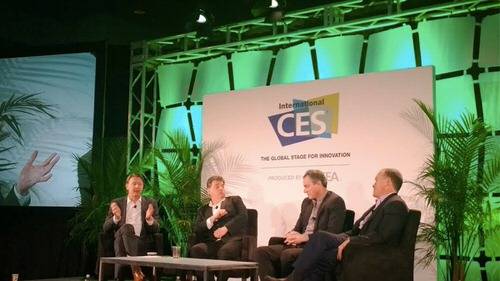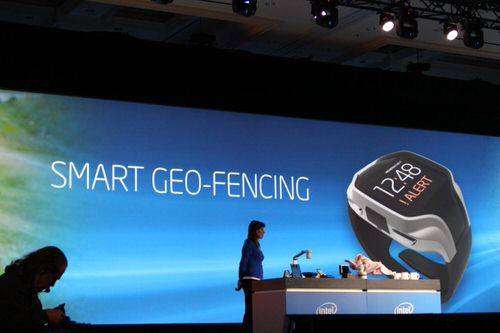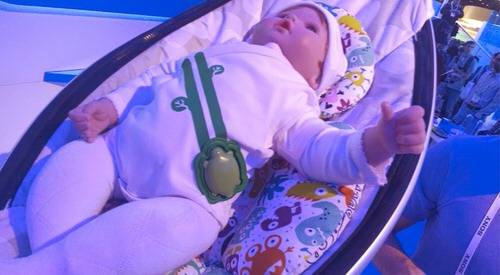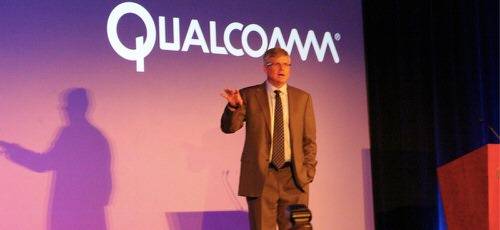You’re at the doctor’s office for your annual check up. At the end of the physical, the doctor gives you a prescription to take to the pharmacist … and a smartwatch. The doctor tells you that it wants to monitor your heart rate and activity for the next several weeks to determine a baseline of your health and fitness.
If the doctor is concerned with your heart, she might also give you a sensor that is injected into your bloodstream. She says that this sensor can alert you to a possible heart attack two weeks before it actually happens.
Then you go home, in a car that drives itself, while you catch up on the work you missed while at the doctor’s appointment.
At home you open the door and use your smartphone to turn on the lights in your home, set the TV to record the next episode of Downtown Abbey and preheat the oven.
“Play Beethoven’s 5th Symphony,” you say to nobody in particular. Moments later, the familiar notes are blasting through your house. You sit down on the sofa—perhaps the only thing in the house that doesn’t have its own data connection—wave your hand at your television to turn it on and say, “call Tim.” In a minute you are video chatting with your husband who is at a conference in Chicago.
You eat dinner, watch that episode of Downton Abbey and go to bed. While you are sleeping the smartwatch that the doctor gave you monitors your breathing and sleep rhythm and uploads the data to a personal secure cloud that only your physician can access.
A few weeks pass. Eventually, the doctor calls and says, “don’t worry. Everything is OK. The sensors say that your heart is just fine. See you next week.”
All of this may sound like a weird version of science fiction. It’s not. This is the future you.
Sensors In Your Body
The sensor that can be injected into your veins to monitor your bloodstream is already a reality, sort of.

“We are doing a clinical trial in San Diego of a sensor that will get injected into your bloodstream and tell you two weeks before you have a heart attack,” said Qualcomm chairman Paul Jacobs in a panel discussion at the Consumer Electronics Show in Las Vegas. (Actually, the research is intended to “validate” use of the biosensors; actual proof that they can actually predict heart attacks is most likely years away.)
The smartwatch that monitors your heart and fitness activity? That exists in a variety of forms. FitBit and the Nike FuelBand are the most prominent, but companies like Intel have created new watches that function on without need to connect them to a smartphone.

The new Intel smartwatch, announced by CEO Brian Krzanich at the CES keynote presentation on Monday, even has a “smart geo-fencing” feature that can keep track of where you are and what you are doing. Say your grandmother is ill and starting to suffer from dementia. She often loses her way and become confused to her surroundings. A smartwatch like the one that Intel announced could keep track of her and give you an alert if she leaves the grounds of the nursing home where she lives.
The future of computing is not just the ability to get push notifications to device you wear on your wrist, answer a phone call or take a picture. It is about gathering and using data to make your life better, easier and more productive. The machines should make life less complicated. Companies like Intel and Qualcomm are leading the charge in innovation by building the platforms, processors and tools that will fundamentally alter how people live their lives.

For instance, take the new “Edison” chip from Intel. The chip is essentially its own smart computer that can be implanted into just about everything. When Krzanich announced it at CES this week, he showed it off with a baby’s onesie that could monitor how the child was breathing, its temperature and even the position it’s laying in.
This may sound kind of creepy, but baby monitors are already an essential item for every new parent. Chips like Edison and its progeny will create the next generation of systems for our everyday lives.
The World That Is Connected To Everything
If we are talking about the once and future definition of “mobile computing,” we look at a world where our smartphone becomes a hub that can control everything around us. Processes and behaviors can become automated and we use the smartphone to monitor and control everything from our homes to our cars.
“I just want my machines to coordinate with my other machines and leave me out of it,” John Donovan, AT&T’s senior executive vice president of technology and network operations, said at CES this week. “The mobile phone will be the remote control of your life.”

“We are very, very pleased to see the trend of the smartphone leading us to growth in other industries,” said new Qualcomm CEO Steve Mollenkopf at a question and answer session at CES. “We will drive it in tiers. Across device types and price points.”
What Mollenkopf meant is that the explosive growth of smartphones is now informing the next generation of computing. The same processors that make smartphones so smart are now turning up in consumer products like smartwatches, thermostats, home appliances and more. For instance, ARM-based processors power gadgets like the Nest thermostat that can learn if you are home and automatically change the temperature for you.
Even legendary science fiction author Isaac Asimov could not have predicted how intelligent ours systems will eventually become. We are driving computers everywhere, into every aspect of our lives. The effect of this is not easily quantifiable because the scope and impact is massive. A few years ago, bloodstreams sensors or smartwatches seemed like crazy pie-in-the-sky topics among geeks sitting at the pub.
Today, it is a reality that will rapidly become the norm.

















